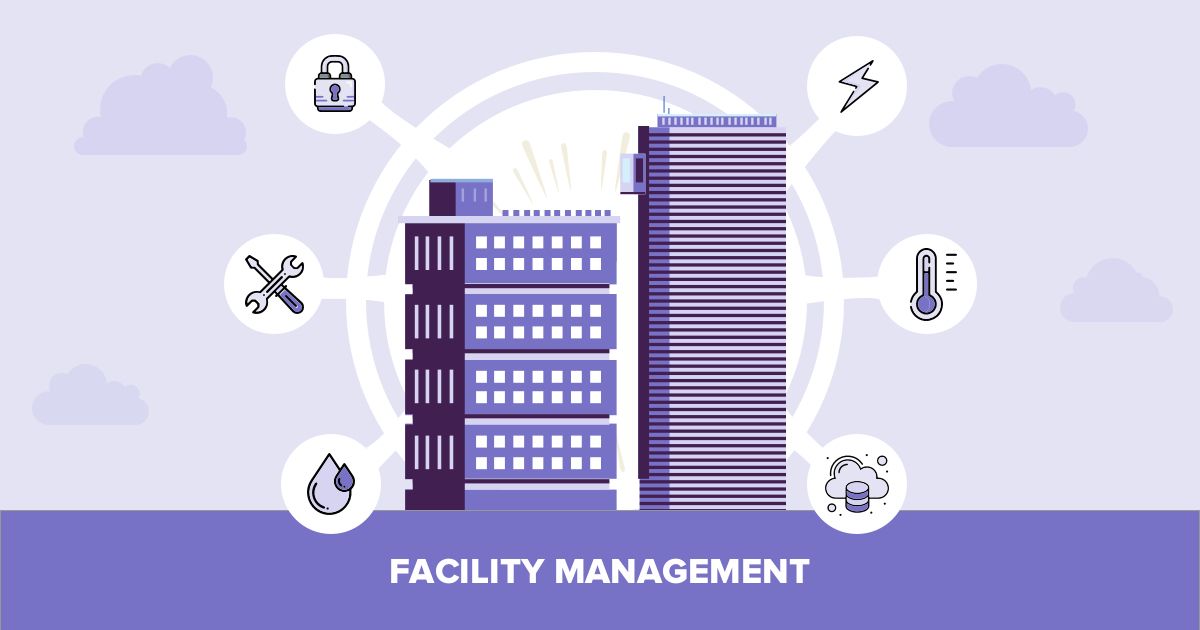Facility Management-- Essential Providers for Reliable Workflow
Secret Patterns Forming the Future of Center Management in 2024
As we look ahead to 2024, the landscape of center management is poised for considerable makeover, driven by numerous essential trends. The combination of clever structure modern technologies and a shift in the direction of data-driven decision-making assurance to enhance operational efficiency while prioritizing sustainability in method. Additionally, the introduction of crossbreed job designs is reshaping office environments, necessitating ingenious style solutions that accommodate progressing staff member requirements. In the middle of these adjustments, the concentrate on occupant wellness continues to gain traction, underscoring the significance of a healthy work environment. Just how these fads will certainly materialize in method remains a critical question for sector experts.
Smart Building Technologies
Smart building innovations incorporate a vast array of systems, including intelligent illumination, HVAC controls, and security systems. By integrating these systems, facility managers can keep an eye on and readjust parameters in real-time, resulting in significant reductions in power waste and functional prices. For example, clever sensing units can detect occupancy degrees and change illumination and temperature level appropriately, making sure that energy is only used when required.
In addition, these innovations promote boosted information collection, allowing organizations to track usage patterns and identify opportunities for additional enhancements. The implementation of wise building technologies not just adds to sustainability goals however also produces healthier job settings that can increase employee performance and satisfaction.
As we relocate into 2024, the adoption of wise structure technologies will likely speed up, mirroring a wider shift in the direction of more smart, receptive, and sustainable center management techniques.
Data-Driven Choice Making
Progressively, companies are leveraging data-driven decision making to boost facility monitoring techniques. By taking advantage of data analytics, facility managers can acquire workable insights that substantially improve functional efficiency and resource allowance. The assimilation of advanced modern technologies, such as IoT sensors and real-time tracking systems, makes it possible for the collection of substantial quantities of data on structure efficiency, occupancy rates, and energy usage.
This riches of information enables center managers to determine fads, predict upkeep demands, and proactively address concerns before they intensify. For instance, predictive analytics can forecast tools failings, decreasing downtime and repair work costs. In addition, information visualization tools assist in far better communication among stakeholders, guaranteeing that notified choices are made collaboratively.
Moreover, data-driven methods improve calculated preparation by making it possible for facility managers to examine the performance of existing practices and make informed choices relating to financial investments in modern technology or framework. As companies significantly prioritize functional quality, data-driven choice making is poised to become a cornerstone of successful center administration methods in 2024 and beyond. Eventually, the ability to leverage data effectively will empower companies to develop a lot more efficient, productive, and resilient centers.
Sustainability and Environment-friendly Practices
The focus on data-driven decision making normally straightens with the expanding concentrate on sustainability and green practices within center administration. As organizations increasingly focus on ecological responsibility, center supervisors are leveraging analytics to maximize source use, lower waste, and lessen carbon footprints. This strategic approach makes it possible for the combination of energy-efficient systems, such as LED lighting, clever a/c controls, and renewable resource resources right into facility operations.
Additionally, the execution of lasting practices expands past energy usage. Facility managers are adopting environment-friendly materials and advertising reusing campaigns to create a circular economic climate within their facilities. This not only enhances the environmental profile of the company but additionally fosters a culture of sustainability amongst staff members.
Conformity with environmental policies is one more essential element driving the fostering of green techniques. By using information analytics, facility managers can monitor compliance metrics and determine areas for renovation, making sure adherence to neighborhood and global sustainability standards.
Hybrid Job Designs
A considerable change in the direction of crossbreed work models is reshaping the landscape of facility management in 2024. This standard combines remote and in-office work, demanding a reevaluation of room use, resource allotment, and staff member engagement techniques. Organizations are progressively acknowledging the relevance of versatile work spaces that deal with varied requirements and choices.
Facility supervisors should adapt by carrying out functional workplace layouts that sustain collaborative initiatives while providing areas for focused work. This includes the assimilation of modern technology to facilitate smooth interaction and cooperation among in-office and remote employees. Smart building solutions, geared up with analytics and sensing units, permit real-time surveillance of area use, making it possible for organizations to optimize their environments successfully.
Furthermore, crossbreed work versions emphasize the demand for reliable center administration that focuses on employee experience. This incorporates not just technology and space design but additionally the advancement of policies that advertise a well balanced work-life dynamic. As companies navigate this shift, the role of facility administration comes to be essential in developing a nimble workplace that promotes productivity and drives organizational success. Fundamentally, the hybrid job version is revolutionizing center management, motivating a positive method to meet the developing demands of the workforce.
Improved Resident Wellness
As companies welcome hybrid work versions, an increased focus on resident health is coming to be essential to facility management techniques. Facility Management. This shift recognizes that a healthy and completely satisfied labor this article force straight influences efficiency and retention rates. Facility managers are now focusing on atmospheres that advertise physical and mental health, incorporating components such as natural illumination, biophilic layout, and obtainable wellness sources

Innovation plays an important role in this evolution. Smart building systems can check ecological elements and adjust setups in real-time, making certain optimum comfort levels - Facility Management. Responses mechanisms, such as occupancy sensors and staff member studies, permit center supervisors to continually improve wellness efforts based on owner requirements.

Verdict
In 2024, the future of facility management will certainly be dramatically influenced by the assimilation of go to this website smart building technologies and data-driven decision-making, promoting improved functional performance. Sustainability efforts will certainly prioritize environment-friendly practices, while the introduction of hybrid job versions will require flexible office styles. An increased emphasis on occupant wellness with advanced Cooling and heating systems and biophilic design will contribute to much healthier work environments. These trends jointly emphasize the evolving landscape of facility monitoring in feedback to contemporary difficulties and possibilities.
Facility supervisors see it here are promoting and embracing environment-friendly materials recycling initiatives to produce a circular economic situation within their centers.A considerable shift towards hybrid work designs is improving the landscape of facility administration in 2024.In addition, hybrid work designs emphasize the demand for reliable center administration that focuses on employee experience.As organizations accept hybrid job versions, an enhanced focus on owner health is ending up being important to facility administration strategies.In 2024, the future of facility administration will be substantially affected by the assimilation of clever structure innovations and data-driven decision-making, cultivating enhanced operational performance.